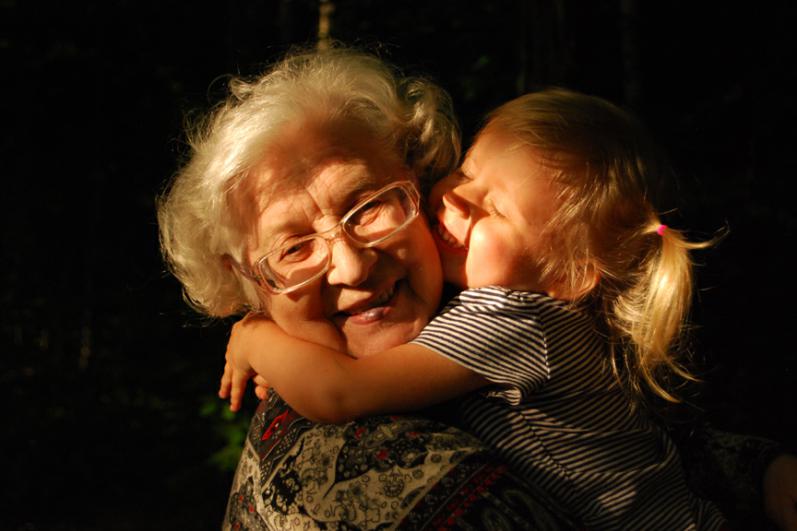Grandparents and the faith
In one of the Wednesday audience talks he's been giving on aging, Pope Francis declared what he called "the alliance of the generations" to be "indispensable."
"A society in which the elderly do not speak with the young, the young do not speak with the elderly, is a sterile society," the pope pronounced.
That's a sobering thought. But also an implicitly positive one at a time when many parents struggle -- or in some cases don't really try -- to transmit religious faith to their children. In either case, conscientious grandparents could step up to fill an evident need.
Think that's judging parents too harshly? In their book "Handing Down the Faith" (Oxford University Press), sociologists Christian Smith and Amy Adamczyk report that parents play by far the largest role -- greater than churches, schools, or anything else -- in shaping children's religion.
The bad news, they say, is the situation depicted by a study showing only 17 percent of Catholic parents consider it "very important or essential" for their kids to share their faith. (Mainline Protestants also came in at 17 percent, Jews 13 percent, Unitarians a resounding 0 percent.)
If you wonder why so many children turn away from religion, the answer starts here.
But here also is where grandparents could help, either by filling the parental gap where it exists or reinforcing the efforts of conscientious parents who work at sharing their faith with offspring. In either case, grandparents will do their part in forging that intergenerational "alliance" of which Pope Francis speaks.
Here let me commend to your attention an unpretentious little book offering those who doubt their ability as religious educators simple, practical guidance. "Hope for Your Grandchildren: Talking to the Third Generation About What Matters" is the title. It's the work of Stephen Gabriel, a Catholic author and grandfather living and writing in the Washington, DC, suburb of Falls Church, VA, and is published by Scepter.
The book is in the form of letters from Gabriel to his young-adult grandchildren. In a brief introduction addressed to other grandparents, he explains that the letters are meant as "examples or templates" to help readers formulate their own approaches to grandkids. He doesn't say so, but it occurs to me that parents also would find this helpful.
The 16 short letters cover an interesting variety of topics that range from God to work to dealing with hardship. The writing is direct and to the point, as in this on vocation: "God our Lord has a plan for each person he creates: his or her sanctity. Within this universal Christian vocation to holiness, he has a specific plan for each of us. You will discover this calling if you develop a personal relationship with Christ."
Or this on sex: "The world is pushing some very dangerous ideas about sex. . . . God gave
you a sex drive that is meant for good. However, it is meant to be used properly. We are not beasts who act on instinct alone. We can control ourselves (contrary to what some will tell you). But we have to be smart and avoid situations that may lead to trouble."
At the end, Gabriel sums up his book as advice on helping grandkids become "better friends, better husbands or wives, and better citizens." That resonates with the emphasis Smith and Adamczyk place on not only "walking the walk" -- giving good example to children -- but "talking the talk" -- speaking directly to kids about faith and values. "Hope for Your Grandchildren" is a timely, helpful guide to doing that.
- Russell Shaw is the author of more than twenty books. He is a consultor of the Pontifical Council for Social Communications and served as communications director for the U.S. Bishops.



















